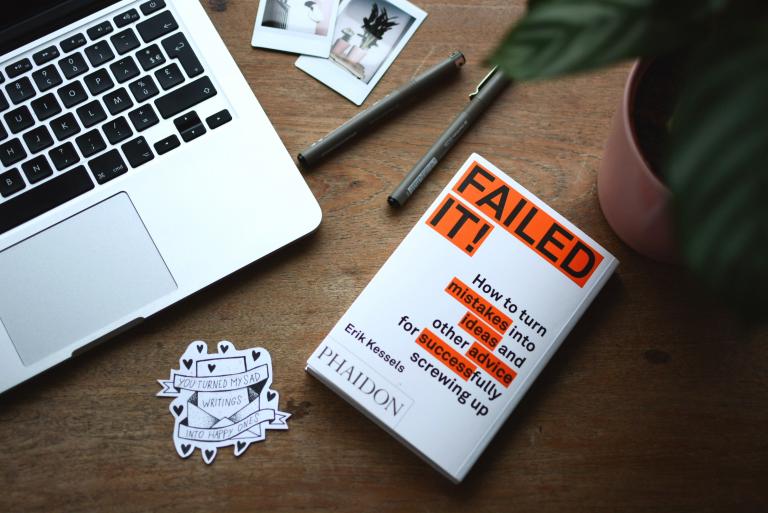One of the hardest things for us to do is admit when we are wrong. Acknowledging fault feels dangerous to us. And it is. While there are some good reasons we are afraid, the benefits outweigh the risks.
Don’t Make A Mistake

The reason we try so hard to cover up, deny, or run from our faults is because we live in a Don’t-Make-A-Mistake culture. There is evidence of this all around. We were watching a popular baking-competition-show on Netflix and they keep saying the tarts have to be “absolutely perfect”. Shows like Survivor claim every decision along the way is “a million dollar choice”. The reason they do this is partly to manufacture drama. But it is also evident of what we value in our culture.
We don’t value mistakes. We are punished for them.
The result is that we fight hard to avoid mistakes. We don’t want to have to deal with the consequences of our actions. The subtle message of our culture is that failure is an identity issue rather than a circumstantial one. Every mistake speaks to the core of who we are. And since we feel as though the whole thing is a house of cards waiting to tumble, we try to avoid admitting fault to keep that structure standing as long as possible.
Create Something
Admitting fault has two clear benefits for us and they are related to one another.
The first thing is that only by admitting fault can be truly own our ability to change. In an effort to avoid failure, we pawn off mistakes to others, our culture, or our circumstances. We make ourselves victims. The problem with this is that it then becomes someone else’s responsibility to change us, to make things better.
This is exactly what we want. We can maintain our illusion of perfection but only if we blame others for where things fall short. But in doing so, we actually surrender our ability to influence. Our Avatars of perfection only help build a fantasy world. They don’t help us to develop character or influence lasting change.
The second benefit to admitting our fault is that it helps us to Create Something. Our vision(s) will only be realized when we acknowledge truth and take active steps toward character development.
Imagine trying to bake a cake but being terrified of breaking eggs! That is essentially our attitude toward life. We don’t want to make any mistakes but we desperately want to live a life of purpose and meaning. We can’t experience transcendent peace and joy without the learning process. And we can’t learn without making mistakes, acknowledging them, and taking the opportunity to pursue deeper understanding.

There is an important distinction to be made here. Failure is attempting to succeed and falling short. It is not messing up on purpose. Sabotage is not failing. It is sin (which is a kind of failure, but a much deeper one). So when we talk about the value of admitting fault, we’re not saying that you should go out there and screw up on purpose. There isn’t much to learn from that except Stop It! Although some of us do this exact thing. Manipulating mistakes is a way to avoid the vulnerability of truly trying. We are talking here about honestly trying and falling short.
The deeper reason all of this is valuable is because it brings us into alignment with the truth. The truth of our visions, our imperfections, and the opportunities of our circumstances brings us closer to the meaning we long for. We spend so much time avoiding truths because they often hurt. But they also set us free. And the truth is, we mess up sometimes. Don’t be afraid to admit it.












